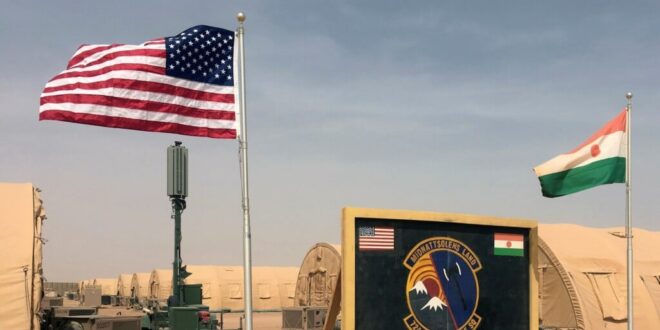Latest Developments
Niger may end counterterrorism cooperation with America over U.S. accusations that Niger’s ruling junta is negotiating a deal to sell uranium to Iran, reported The Wall Street Journal on March 17. The termination of cooperation could lead Niger to follow through on plans to eject U.S. military and civilian personnel from the country. U.S. officials traveled to Niger last week in an attempt to also foreclose Niger’s deepening defense relationship with Russia.
Expert Analysis
“The administration needs to figure out how to block uranium supplies to Iran and cut off Niger’s sensitive relationships with Putin all without losing a critical Africa counterterrorism platform.” — Richard Goldberg, FDD Senior Advisor
“The United States must work to prevent countries from selling mined uranium to Tehran, which would enable the regime’s further stockpiling of enriched uranium. That material’s only true purpose is for nuclear weapons.” — Andrea Stricker, FDD Research Fellow and Deputy Director of FDD’s Nonproliferation and Biodefense Program
Iran May Need Foreign Uranium
A quiet uranium deal with Niger could serve to meet Iran’s longtime shortage of mined uranium. Tehran requires more than its current indigenous reserves for its uranium enrichment program, which has no civilian purpose and is best suited for a nuclear weapons effort. Iran also plans a vastly expanded nuclear power program but could rely on foreign supplies for fuel.
The 2022 “Uranium Red Book,” co-authored by the Organization for Economic Cooperation and Development’s Nuclear Energy Agency and the International Atomic Energy Agency (IAEA), shed light on Iran’s tight domestic uranium resources. It estimated Iran required 160 thousand tonnes of uranium in 2020, the last date for which Tehran provided data. Yet the regime only has the capability to produce up to 80 thousand tonnes by 2025.
Iran previously obtained uranium from abroad on a handful of known occasions — from South Africa in the early 1980s and in 2015 from Russia, via Kazakhstan-origin uranium. Tehran attempted to buy uranium directly from Kazakhstan on several occasions, but Western pressure torpedoed the sales.
Western Countries Must Detect and Stop Tehran’s Efforts
Under its safeguards agreement with the IAEA, Iran is required to report to the agency only its import of mined and milled uranium products, rather than precursor uranium ore, a safeguards loophole. If Iran adhered to the IAEA’s stronger inspection agreement known as the Additional Protocol (AP), the IAEA could better monitor a key nuclear fuel cycle activity that could lead to Tehran’s expanded production of enriched uranium for nuclear weapons. Notably, Niger adheres to the AP and would need to report its export of uranium ore. United Nations Security Council (UNSC) Resolution 2231 also requires potential suppliers of uranium to Iran to submit proposals to the UNSC for prior approval.
The United States and its partners should hone national intelligence capabilities toward efforts by Iran to procure uranium from abroad. South Africa and Russia could also serve as attractive suppliers. The Biden administration should continue to pressure Niger not to follow through with a sale. Washington should heavily sanction entities and governments that ignore its warnings.
 Eurasia Press & News
Eurasia Press & News


